How to Foster a Great Relationship With Your Builder
In this book extract, two building experts reveal how to build a positive working relationship with your builder
Georgia Madden
2 April 2021
Building or renovating is often a high-stress experience, but you can make it infinitely more pleasant by fostering a solid working relationship with your builder. Being open and upfront, setting clear boundaries and not micro-managing are just some of the ways you can achieve it, say building experts Rebeka Morgan and Kribashini Hannon of BuildHer Collective in their new book, BuildHer.
Read on for more of their insider tips.
Read on for more of their insider tips.
Images by Dylan James & Martina Gemmola
Authors and co-founders of BuildHer Collective Rebeka Morgan (left) and Kribashini Hannon (right)
Do you ever hear stories about relationships with tradespeople or building contractors turning sour? We hear about them far too often, and it’s a shame they receive more attention than the good news stories. There are many reasons why relationships between invested parties break down, and we can 100-per-cent confirm that there are always two sides to the story.
Authors and co-founders of BuildHer Collective Rebeka Morgan (left) and Kribashini Hannon (right)
Do you ever hear stories about relationships with tradespeople or building contractors turning sour? We hear about them far too often, and it’s a shame they receive more attention than the good news stories. There are many reasons why relationships between invested parties break down, and we can 100-per-cent confirm that there are always two sides to the story.
Creating and fostering a good relationship with your builder, architect or tradesperson is important, but it’s also rewarding, especially if you want to enjoy your building journey. Builders typically gain reputation through word of mouth, so it’s in their best interest to complete a job to the best of their ability and communicate with you at all stages of the build.
Is this the year you build or renovate? Find a local architect on Houzz
Is this the year you build or renovate? Find a local architect on Houzz
When it comes to choosing a builder, it’s a jungle out there. There are young and old builders, those with lots of experience dealing and communicating with clients and those who haven’t had that experience and are learning as they go.
The first step is to find a builder who not only comes recommended, but is also the right personality fit for you. They should have good communication skills and a respect for what you’re trying to achieve and why. They also need to suit your style of working and understand your values.
The first step is to find a builder who not only comes recommended, but is also the right personality fit for you. They should have good communication skills and a respect for what you’re trying to achieve and why. They also need to suit your style of working and understand your values.
Top tip: If a builder fails to communicate well during the quoting stage and you have reservations about giving them the job, rather than discounting them altogether, it might be worth having a frank conversation about your concerns and see if you can find a way to better communicate before making a decision.
Set clear expectations
When you are upfront with a builder, you help them understand what is important and potentially non-negotiable for you.
An example of this might be the need for a fixed completion date. Perhaps you’re renting a home for the duration of the works and the end date of your rental needs to coincide with the completion of your renovation. There are clauses in contracts that deal with this, but we want to build a good relationship and only refer to contracts if and when we have to.
See more images of beautiful bedrooms on Houzz
When you are upfront with a builder, you help them understand what is important and potentially non-negotiable for you.
An example of this might be the need for a fixed completion date. Perhaps you’re renting a home for the duration of the works and the end date of your rental needs to coincide with the completion of your renovation. There are clauses in contracts that deal with this, but we want to build a good relationship and only refer to contracts if and when we have to.
See more images of beautiful bedrooms on Houzz
When you’re talking to contractors about problems, do so in an informed way. Set a meeting time and write an agenda so everyone knows what will be discussed.
Take notes and circulate them after the meeting. Make sure you write down who’s responsible for following up something and when it needs to be done by. The clearer you can make this the better, and the more decisions you can make together will help you and/or your builder better manage the project.
Be cautious about making design changes, as they can lead to delays and mistakes.
Take notes and circulate them after the meeting. Make sure you write down who’s responsible for following up something and when it needs to be done by. The clearer you can make this the better, and the more decisions you can make together will help you and/or your builder better manage the project.
Be cautious about making design changes, as they can lead to delays and mistakes.
Visit the site regularly and be informed about what’s coming up.
Ask questions that are open-ended to foster good discussions. Don’t micro-manage and do show that you trust all relevant parties to complete the works within your expectations and without shifting the goalposts along the way.
Ask questions that are open-ended to foster good discussions. Don’t micro-manage and do show that you trust all relevant parties to complete the works within your expectations and without shifting the goalposts along the way.
Being part of an online community, such as BuildHer, can be really helpful. Building can be lonely! Sometimes you might feel like it’s you against an entire team of professionals who are more informed and that your opinions mean less, which isn’t right.
Connecting with others who
are going through the same process enables you to share problems and receive help, guidance, advice and confidence, as well as manage any small insecurities that might pop up.
Connecting with others who
are going through the same process enables you to share problems and receive help, guidance, advice and confidence, as well as manage any small insecurities that might pop up.
Lastly, address bad behaviour upfront. If your project has started and all of a sudden your builder is not playing by the rules you agreed to, it’s important to address that behaviour straight away. Being dismissive, putting on a show to his or her peers, or ignoring you on site is not on. This should be cleared up immediately in the hope of forging a clear and honest building journey together.
This is an edited extract from BulidHer by Rebeka Morgan and Kribashini Hannon, published by Smith Street Books on 7 April 2021, RRP $45. It is available from Booktopia.
Your turn
What have your relationships with your builders been like? Tell us in the Comments below, like this story, save the images, and join the conversation.
More
All builders on Houzz use Houzz Pro software to make communication clearer and easier to track. Find a builder here.
Your turn
What have your relationships with your builders been like? Tell us in the Comments below, like this story, save the images, and join the conversation.
More
All builders on Houzz use Houzz Pro software to make communication clearer and easier to track. Find a builder here.
Related Stories
Most Popular
Renovation Insight: How to Choose a Sustainable Architect
Thinking of going green? Three experts share their advice on finding and choosing a sustainable architect for your build
Full Story
Working with Professionals
Renovation Insight: How Do I Choose a Builder?
Three industry insiders reveal the secrets to selecting the right builder for your new build or renovation
Full Story
Most Popular
Building to a Budget: 12 Must-Know Design Considerations
What influences the cost of a new build? An architect reveals all – read this before setting your home design in stone
Full Story
Most Popular
10 Times You Should Hire a Building Designer
Find out when it pays to consider using a company that offers both design and construction as a package
Full Story
Before & After
Before & After: Once Hidden, a Victorian Home's Beauty Unmasked
Peeling back the layers of a series of modernisations and then adding a sympathetic new extension revitalised this home
Full Story
Most Popular
Removing a Wall? What to Consider Before You Get Started
Thinking about getting rid of a wall at home to create more open space? Here's what you need to consider first
Full Story
Interior Design
What's Next in Homes? 4 Design Experts Reveal
Do you know which colours, shapes and styles we'll be coveting in the year ahead? Four design pros give the inside scoop
Full Story
Projects Born on Houzz
Rural Houzz: A Reader's Forever Home, Inspired by Houzz
When designing a home on a challenging site for ageing-in-place, this reader turned to Houzz for inspiration and advice
Full Story
Houzz Tours
Gold Coast Houzz: A Modern Beach House With Resort-Like Vibes
See how a building designer resolved the challenges of a problematic sloping site to create a sophisticated coastal home
Full Story
Renovating
Best of 2022: 3 Design Pros Share Their Favourite Projects
As we bid farewell to 2021, three design professionals tell us about the projects they're most proud of this year
Full Story













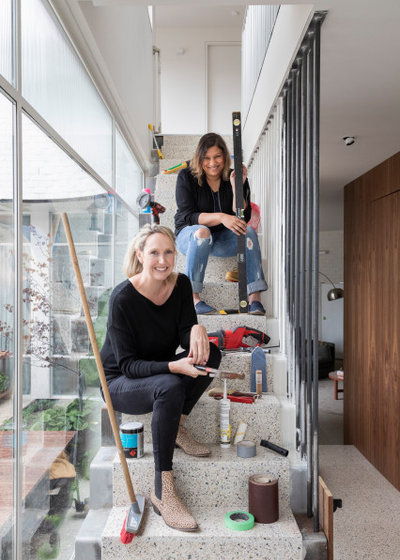

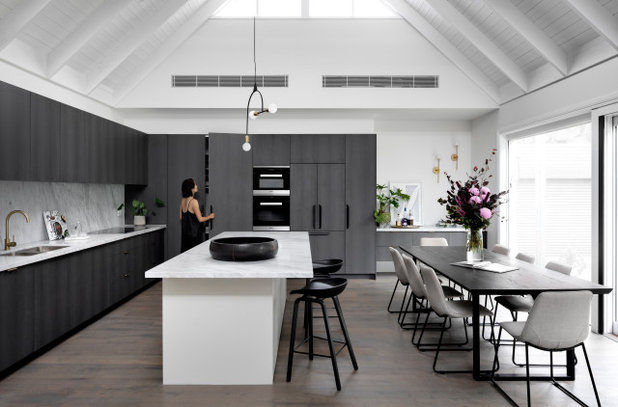
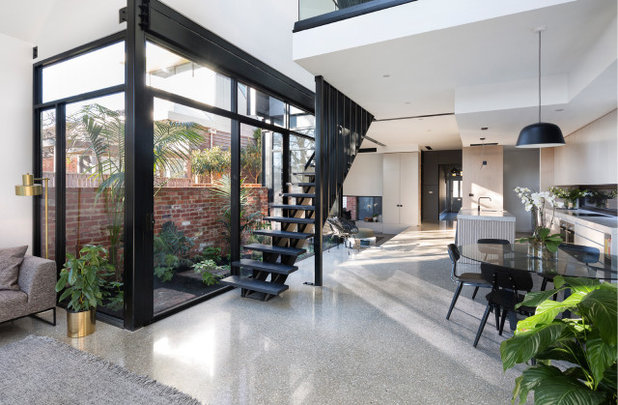


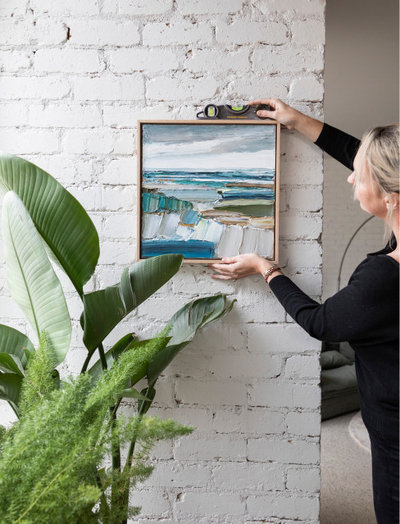
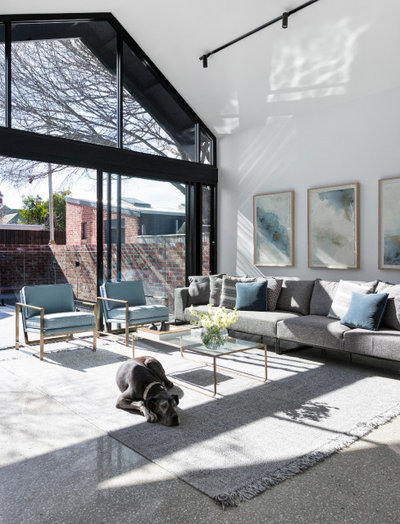
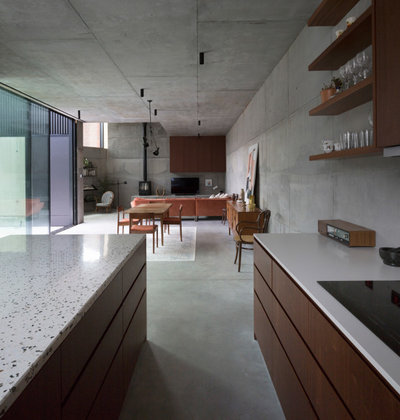
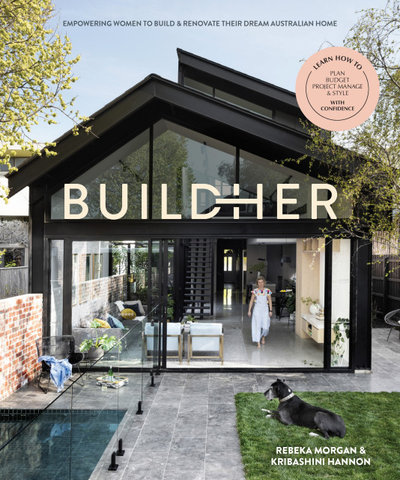

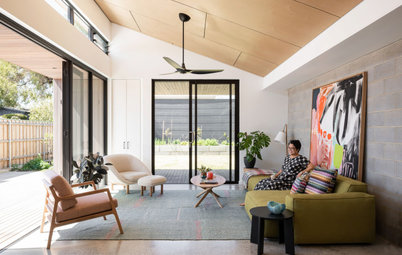

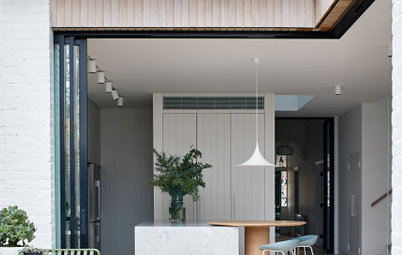
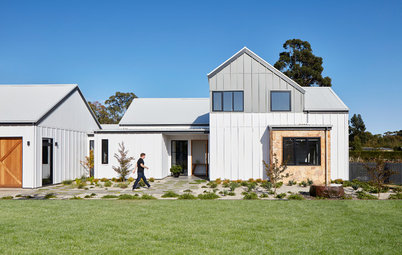

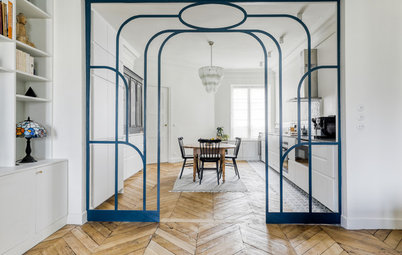



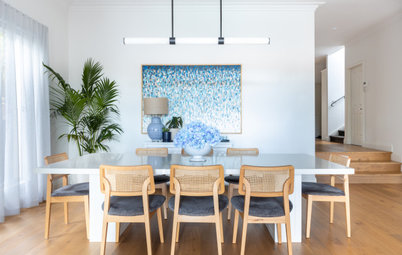
Ok thanks
Some great comments/ideas
However
To achieve a good relationship with your builder or contractor.
Pat within 24 hours of receiving an invoice!
Cash flow for your builder is his most important consideration,
If you receive an invoice Friday, Pay on Saturday, not Monday, and never with hold !0 %
Have put this book on my Mother’s Day wish list.